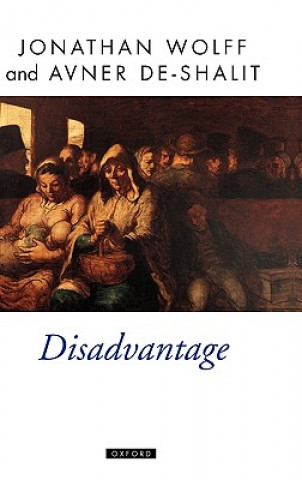
Doručenie
Nákupný poradca





Nehodí sa? Žiadny problém! U nás môžete do 30 dní vrátiť
 Darčekový poukaz
v ľubovoľnej hodnote
Darčekový poukaz
v ľubovoľnej hodnote
S darčekovým poukazom nešliapnete vedľa. Obdarovaný si za darčekový poukaz môže vybrať čokoľvek z našej ponuky.
Disadvantage
 Angličtina
Angličtina
 323 b
323 b
30 dní na vrátenie tovaru
Mohlo by vás tiež zaujímať


What does it mean to be disadvantaged? Is it possible to compare different disadvantages? What should governments do to move their societies in the direction of equality, where equality is to be understood both in distributional and social terms? Linking rigorous analytical philosophical theory with broad empirical studies, including interviews conducted for the purpose of this book, Wolff and de-Shalit show how taking theory and practice together is essential if the theory is to be rich enough to be applied to the real world, and policy systematic enough to have purpose and justification. The book is in three parts. Part 1 presents a pluralist analysis of disadvantage, modifying the capability theory of Sen and Nussbaum to produce the 'genuine opportunity for secure functioning' view. This emphasises risk and insecurity as a central component of disadvantage. Part 2 shows how to identify the least advantaged in society even on a pluralist view. The authors suggest that disadvantage 'clusters' in the sense that some people are disadvantaged in several different respects. Thus identifying the least advantaged is not as problematic as it appears to be. Conversely, a society which has 'declustered disadvantaged' - in the sense that no group lacks secure functioning on a range of functionings - has made considerable progress in the direction of equality. Part 3 explores how to decluster disadvantage, by paying special attention to 'corrosive disadvantages' - those disadvantages which cause further disadvantages - and 'fertile functionings' - those which are likely to secure other functionings. In sum this books presents a refreshing new analysis of disadvantage, and puts forward proposals to help governments improve the lives of the least advantaged in their societies, thereby moving in the direction of equality.
Informácie o knihe
 Angličtina
Angličtina




 Ako nakupovať
Ako nakupovať


























